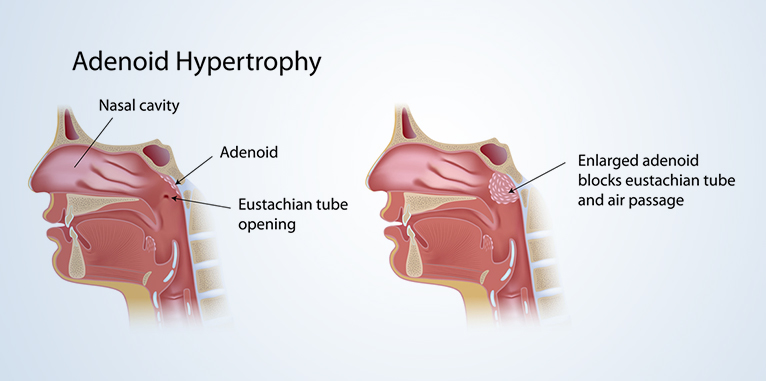Adenoids, also known as pharyngeal or nasopharyngeal tonsils are masses of lymphatic tissue behind the nasal cavity, hidden by the soft palate and the uvula.
Adenoids are part of a ring made up of lymphatic tissue (the so-called Waldeyer ring) which can be found in the oral cavity and the pharynx. Being part of the immune system, the ring serves as our first line of defense against infections by acting as a biological filter station.



